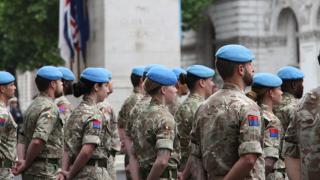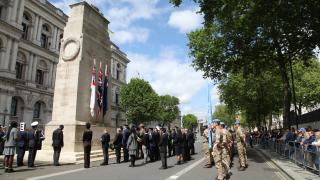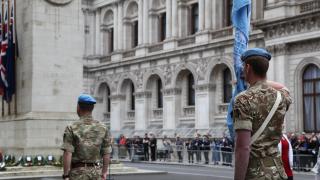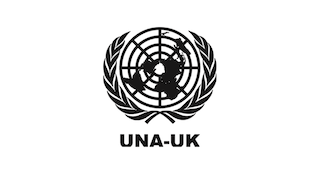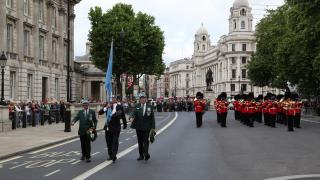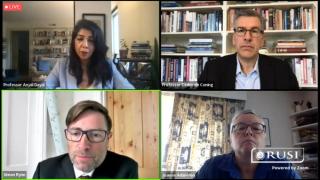Next week the UN Security Council will have discussions and pass a resolution to renew the mandate of the United Nations Organization Stabilization Mission in the Democratic Republic of the Congo (MONUSCO).
Our Head of Policy recently visited Goma in the Democratic Republic of Congo to observe the work of the mission. You can read about that trip here.
The UN Mission in the Democratic Republic of Congo is operating under severe strain with limited resources. Having suffered a near 8% funding cut last year, they have had to close bases and resort to “protection through projection” – a strategy that relies on the ability of UN peacekeepers to be highly mobile, which itself can result in significant costs.
The mission also faces multiple threats. Instability and conflict has moved unpredictably around the vast country: from the Kivus in the east to Kasai in the south and now to Ituri in the northeast. This has displaced a large number of people, causing the office for the Coordination of Humanitarian Affairs to declare a level three emergency; this is the highest tier and is shared only by Syria and Yemen. The mission itself has come under attack, losing 14 soldiers in an assault in December – the worst such incident in nearly 25 years.
The coming year is likely to be difficult too, with further funding cuts being entirely possible in June as a consequence of the US wishing to cut its contribution and with the country’s overdue Presidential elections, or indeed their failure to take place, likely to result in heightened tensions and potentially political violence.
Given these constraints, it is vital that the mandate renewal discussions be used to manage expectations, prioritise and stage tasks, and ideally reduce the number of objectives the mission is expected to achieve. The Security Council needs to understand that a reduction in resources and an increase in pressures needs to be met with a reduction in workload or else it will be met with a reduction in performance.
In particular it may be that until elections have taken place, it would be wise to emphasise the “protection of civilians” aspects of the mandate and to put on hold the longer-term work of building capacity and working with the Congolese government on the stability and security of the country. While such work is important in ensuring the country’s transition towards sustainable peace, and thus enabling the mission’s exit strategy, it is premature to develop such a strategy in the absence of the elections which are a precondition for its success.
Further, working closely with the incumbents in an electoral period might be seen to compromise the mission’s impartiality, and the protection of civilians must be the primary priority in a time of increased insecurity and with a heightened risk of political violence. UNA-UK therefore suggest staging the mission’s objectives: prioritising the protection of civilians in the run up to and immediate aftermath of elections, and then pivoting towards the implementation of an exit strategy after elections have been successfully held.
Elections, and their delay, may result in violent confrontations between members of the Congolese armed forces and opposition groups. The UN Security Council could usefully articulate the expectations for the mission in such circumstances, particularly if the primary threat to civilian life were to come from the Congolese armed forces themselves. It will be important to have clarity over whether the mission is expected to provide support to the Congolese armed forces in maintaining control of opposition areas, and - if so - under what circumstances and with what caveats.
UNA-UK expresses its gratitude to MONUSCO personnel for their commendable work towards a more peaceful Democratic Republic of Congo, work undertaken in the most difficult of circumstances.
Photo: Uruguayan MONUSCO barracks, Goma. Credit: UNA-UK

